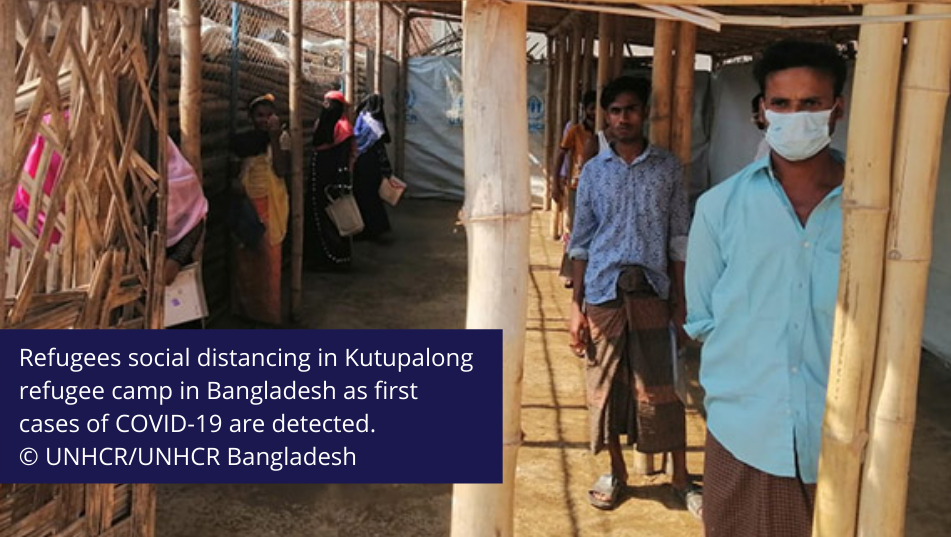The first refugee has tested positive to coronavirus in the sprawling Bangladesh settlements housing almost 1 million displaced Rohingya refugees, as UNHCR more than triples the global response to this surging pandemic.
The appeal was revised up to US$745 million with cases expected to peak in the world’s poorest countries – where four out of five refugees and displaced people live – in the next three to six months.
Naomi Steer, National Director of Australia for UNHCR, said Australians had reached a milestone of more than $1 million donated in support of refugees facing coronavirus, but the news showed strong support was needed now more than ever.
“This is a major humanitarian challenge for which no real precedent exists, and it’s already having a deep and hard-hitting impact on refugees, with many losing their livelihoods early in the crisis,” she said. “The incredible generosity we’ve seen, even with the extreme uncertainty on home soil, shows Australians are ready to step up and support people who need our help around the world, particularly refugees.
Their field teams have experience responding to past outbreaks of SARS, Ebola and influenza, and as the virus reaches crowded refugee settlements, they’re stepping up the response – but with budgets and health services already severely stretched, Naomi said, they urgently need support.
Funds raised so far are already helping the UNHCR’s humanitarian teams deliver essential supplies, including 6.4 million masks, 850,000 gowns, 3,600 oxygen concentrators and 640 ventilators to 25 high priority countries for the COVID-19 response, including Bangladesh.
In Bangladesh, these first cases are being investigated, with isolation and treatment as well as contact tracing, quarantine and testing of contacts as per WHO guidelines. As of Thursday 14 May, 108 refugees in the settlement had been tested.
Almost 55,000 gowns and personal protective coveralls arrived to the UNHCR warehouse in Cox’s Bazar on Thursday for distribution to frontline health workers, and more than 2000 health staff have been trained in Bangladesh refugee camps in the past week.
UNHCR is urgently adapting lifesaving protection programs for survivors of violence and advocating to ensure services are designated as essential and remain accessible to refugees.












